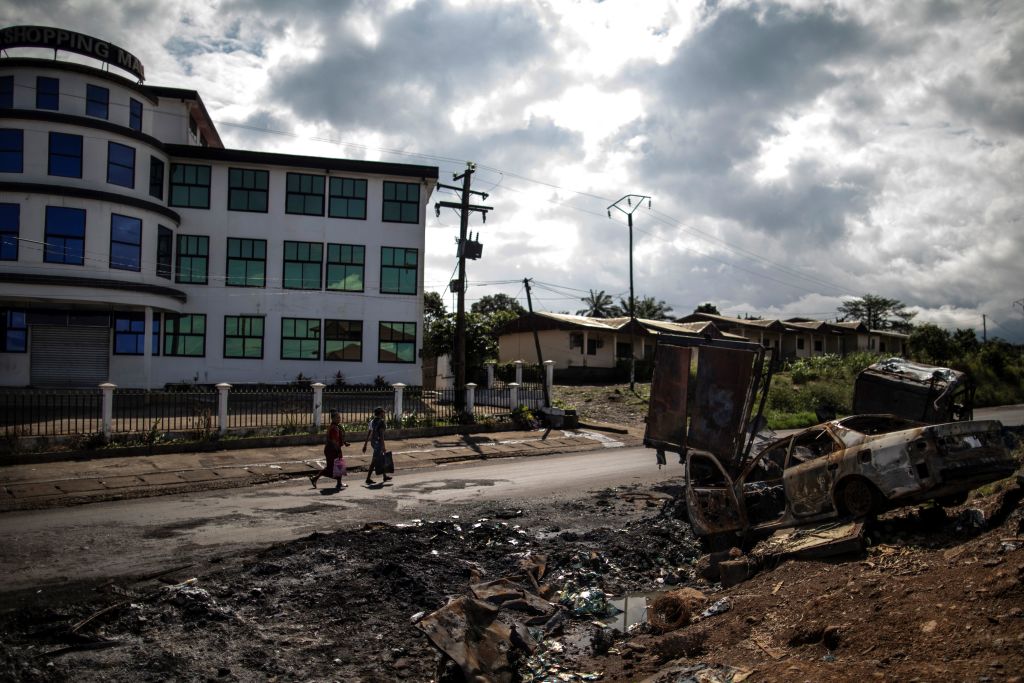Back to School Leads Back to Violence in Cameroon
ADF STAFF
As children prepared to return to school in Cameroon, a wave of violence swept through the Northwest and Southwest regions, sparking fears of a worsening conflict.
The surge in fighting began in August, when separatists from the Anglophone region warned the government not to reopen schools, as scheduled, in September. What followed has been a series of bombings, kidnappings and attacks, including rape. On September 19, a bomb blast at a market in Bamenda killed one and injured six, including a baby. Separatists said the violence was intended to enforce a lockdown in the Northwest regional capital.
“The situation is becoming very difficult,” veteran Cameroonian journalist Moki Edwin Kindzeka told Africa Defense Forum. “As we speak, there are no less than 3,000 schools that are still sealed, and the separatists have said these schools are not going to be operational. When you don’t allow students to go to school, which is a fundamental human right, it is a serious problem.”
The conflict dates to 2016 and 2017, when the government cracked down on a protest by Anglophone lawyers and teachers who claimed discrimination by the French-speaking majority. Fighters from Cameroon’s English-speaking regions launched attacks against government targets with the goal of establishing a breakaway republic known as Ambazonia. The conflict has displaced 800,000 people and caused the deaths of an estimated 6,000.
The violence also created a lawless environment where both armed gangs and separatists use kidnapping as a source of income or to add to their ranks. Insecurity has paralyzed the regional economy which relies on the palm oil, rubber and banana industries. The fighting is spilling across porous borders into neighboring Nigeria, where there are fears of an Anglophone partnership with Biafran separatists.
Kindzeka said the recent level of violence is actually slightly lower than it was several years ago, but he said both sides appear deeply entrenched in their positions. “When I speak to the separatist leaders, they say they will only stop attacking if the government orders its troops to leave the English-speaking region. The government insists it will never do that,” he said. “So it would be very difficult to see that this problem will be resolved in the years ahead.”
Kindzeka identified several key areas that must be resolved in order to bring about peace.
Language parity: Although Cameroon is nominally a bilingual country, in practice higher education textbooks, exams and lectures are overwhelmingly in French. The same is true in the upper levels of government and military. A 2017 review of political ministers found that 36 of 37 were French speakers and found many of the country’s laws and regulations were not translated into English. This lack of linguistic access is a source of anger among the Anglophone population.
Economic investment: The Anglophone area has some of the highest levels of poverty in the country despite being home to natural resources such as timber, oil and rich agricultural land. Kindzeka said the lack of economic opportunities makes it easy for armed groups to recruit fighters. “When separatists come and propose to give them $100 a month or $200 a month, they will be ready to go and fight,” he said. “So if jobs are not created, it will be very difficult.”
Regional autonomy: Cameroon ceased being a federal country in 1972 and its current system of government means many of the decisions for its 10 regions are made by the central government in the capital, Yaoundé. In 2019, as the Anglophone crisis unfolded, Cameroon’s parliament gave the Northwest and Southwest regions “special status” and more autonomy to control local affairs, but observers say regional autonomy has not been fully enacted.
Dialogue: In 2019, Cameroonian President Paul Biya held a “Major National Dialogue” which included separatist groups and was aimed at resolving the crisis. Observers believe it is now time to revisit some of the grievances brought up during those meetings and hold new dialogue sessions in order to negotiate the terms of peace.


Comments are closed.